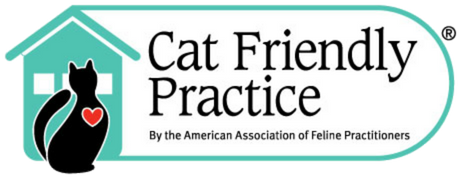|
In recent radio jingles, TV commercials, and print ads, you may have started to notice a trend emerging in all of them. Words like “grain-free” and “raw diets” are gaining momentum as popular diets for cats and dogs, and many of our clients have been asking about these as diet options for their feline family members. 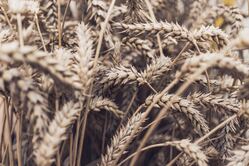 What is Grain-Free? In short, a grain-free diet is exactly how it sounds – a diet (or food) that is free of grains. Grains typically found in cat foods include rice, barley, corn, oats, and wheat. While going grain-free, gluten-free, or watching carbs may be beneficial (or medically necessary) for humans, it simply isn’t the same for cats. In fact, “no credible evidence has been found showing grain-free diets are better for pets,” (Clinician’s Brief). There is a common misconception that ingredients like those listed above are considered ‘fillers’ and therefore have no nutritional value. It’s quite the opposite as whole grains offer vital nutrients and protein that are necessary for their overall health. Another reason a pet owner may consider going grain-free is the idea that grains cause allergies. However, simply eliminating most or all grains doesn’t get to the root cause of what may actually be causing an allergic reaction. If a pet is having an allergic reaction or adverse food reaction, we eliminate specific food ingredients one by one until we narrow down the list of ingredients that may be the issue. It’s also important to keep in mind that most food allergens are related to animal-derived components and not plant-derived. The other idea behind a grain-free diet is that it’s easier to digest and healthier for pets. Cats are biologically capable of digesting carbohydrates. Currently, there is no scientific evidence that proves carbohydrates leads to the development of obesity in cats. In fact, it’s quite the opposite. “Studies have found cats fed a high-fat or high-protein versus a high-carbohydrate diet gain more fat mass and consume more calories,” (Royal Canin) It goes to show how important a balanced diet with the appropriate carbohydrates, proteins, and fats are necessary for your pets health. And even though TLC Cat Clinic is a feline-only veterinary clinic, it’s important to note with any grain-free discussion that the FDA is currently investigating links between grain-free diets and dilated cardiomyopathy (DCM) in dogs. 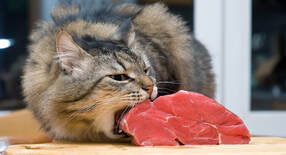 What is Raw? A raw food diet consists generally of muscle and organ meats, sometimes fruits and vegetables, and even ground bone. They are either home-made and prepared from scratch or come raw, frozen, or freeze-dried from companies. One of the more prevalent reasons why pet owners consider a raw food diet is the thought that because cats are descendant from wildcats, and wildcats survive primarily on raw meat, so must a domestic housecat. Another reason we hear is that their cat needs a higher protein diet or that raw foods are easier to digest. While a pet owner may sing the praises of an all-raw diet for their cat, according to Cummings Veterinary Medical Center at Tufts University, there is no scientific information showing any health benefits from raw meat diets. The studies that have been done have only proved nutritional imbalances, health risks to the animal, and public health concerns. In fact, there have been many recalls for commercial raw food diets in the past year due to the presence of salmonella and listeria, among other pathogens, that can be deadly for you and your cat. For raw diets made at home, cats may miss out on incredibly important key nutrients like taurine and calcium that will eventually cause medical problems. There is no proof whatsoever that a raw diet is better for cats. The risks, and lack of positive scientific data, greatly outweigh any anecdotal experiences pet owners may have had with raw diets. Therefore, we cannot recommend a raw diet for our patients and clients. 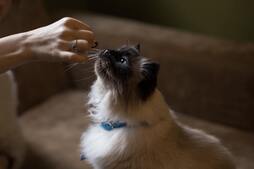 What is Commercial? Commercial diets are those mass produced and generally are the easiest to obtain, whether that’s in-store or online. The three primary manufacturers of commercial diets are:
But just because we use the words ‘commercial diet’ does not mean that the diets are produced en masse with no concern for quality or safety. In our clinic, we recommend Royal Canin diets to our clients, and we do so because of the health benefits for our patience, the millions of dollars of research and development Royal Canin pours into their diets, and the range of prescription diets available to treat very specific medical needs such as urinary, kidney, joints, and more. Commercial diets produced by Royal Canin and others are well-researched by scientists and veterinarians around the globe, and there is constant testing and traceable ingredients to ensure pets are receiving the best diet that meets their needs, both nutritionally and medically. We would be remiss if we did not note that commercial manufacturer, Hill’s, experienced a major recall earlier this year for several of their items. The company was able to quickly identify the source and has since implemented stricter quality control for their suppliers and manufacturers. Unless it’s a prescription diet, there isn’t a clear answer as to which brand or diet is better than the other. All pet foods that state they contain “all essential nutrients (AKA “complete and balanced”) for pets must follow the same standards.” Many manufacturers market their products to follow trends (such as grain-free), but there isn’t any scientific evidence that the diet contains any different ingredients compared to a competitor. So it’s important to choose a diet from a manufacturer that has the experience, knowledge, and science to back up their product. 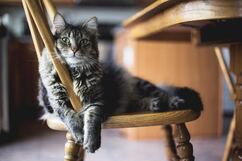 Which is Best? When we consider which diet is best for your pets, we must consider all options that may meet their dietary and medical needs. Out of the three options listed above, the one that has the scientific evidence backing up it’s claims, and the one with the least amount of risks involved, are commercial diets. To summarize, always talk to your veterinarian before deciding to make a major dietary move for your pet. As much as we love our pets, they are not human, and ultimately have different dietary needs than we as humans do. While switching to a grain-free (or lower carb) diet may be medically necessary to help manage certain conditions in cats, it should only be done under the recommendation and supervision of your veterinarian. Our goal is to help ensure your feline lives a long, happy life on the diet best suited for their needs.
0 Comments
Your comment will be posted after it is approved.
Leave a Reply. |
Categories
All
Archives
November 2022
|
|
Plymouth Sun Sailor 2019 and 2020
Readers' Choice Best Veterinary Clinic |
Clinic Hours
Monday - 9:00 am - 6:00 pm Tuesday - 9:00 am - 6:00 pm Wednesday - 9:00 am - 6:00 pm Thursday - 9:00 am - 6:00 pm Friday - 9:00 am - 6:00 pm |
|
Site powered by Weebly. Managed by IDEXX Laboratories

 RSS Feed
RSS Feed



